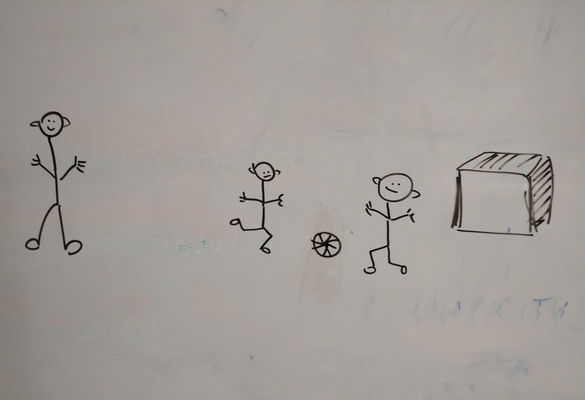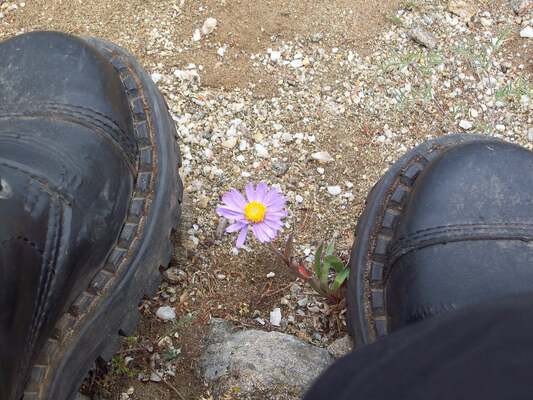
It is quite likely that the next few posts to come will be (heavily) influenced by the very intense experience of tutoring on the IH CYLT course. I train up teachers throughout the whole academic year, in one way or another, but that particular course is as engaging and absorbing as it is demanding. And, naturally, inspiring. Hence this post.
First of all, we love our coursebooks. We love our authors. We love our publishers. We would never give up and teach completely without the coursebook because we appreciate the curriculum, the ready-made activities, the photographs, the audio and the ideas. And we are beyond happy to be able to have a coursebook from a recognised publisher who has been in the business for decades and who is putting a lot of effort into putting together a coursebook. We have worked without coursebooks (not fun), we have worked with horrendous coursebooks from aspiring local publishers/writers (not fun) and, having been in business for decades (oh dear), we have experienced the coursebooks of the 70s and 80s (not fun) and it is obvious the coursebooks have become better. Much better, in fact.
But.
My favourite metaphor
A hammer is a very useful thing, no doubt about that, but would any carpenter let the hammer decide what the table should look like? A knife is a wonderful tool, too, but no chef would be asking the knife for advice on how to cook a steak. Scissors, another amazing creation, but no hair stylist would let the scissors take the lead and make decisions about the haircut. They are all tools and what matters here is the human that manipulates them, a human who understands when the tools contribute to the aim that he or she has and then they don’t and have to be put away (fixed, sharpened, and so on, depending on which part of the metaphor you choose).
In the same vein, with all due respect and no offence meant, the coursebook cannot make the decisions about the lesson. It is a tool, a great tool but only a tool that has to be used wisely.
‘Easy for you to say. You don’t have to teach and you won’t be assessed…’
…is actually something that one of my trainees actually said during the lesson planning session when I suggested (yet again) to put the coursebook aside. On a few other occasions not a word was said but I caught a glance or two that did express the same thought. As if I was the meanest creature in the world, asking the drowning man to let go of the swim ring they are desperately holding on to…
It is, of course, true, I am not teaching to be assessed (well, not on the course) and yes, it is easy to (carelessly) suggest putting the book aside. Why would I want to do that? Ok, here are the reasons:
- The coursebook authors do not know the children (or the students) who sit in your classroom and, try hard as they may, they will never be able to come up with the activities that suit those students’ needs. Only the teacher who works with them can do it.
- The students for whom the coursebooks are written belong to some non-existant category of children: they never cause any problems, they never misbehave, they always come energetic and motivated, they are always focused, they understand and follow instructions at the first attempt, they always match the coursebook level and the ministry description of what a seven- or ten-year old should be like and they are interested in all the possible subjects in the world. Unlike our Pasha, Sasha and Fedya.
- The coursebook authors choose the texts or vocabulary or listening or grammar practice activities based on the principles that might not go with the abilities or interests of your students.
- The summer courses are a perfect opportunity to let the hair down and see what teaching can be like, when the student is at the heart of everything that happens in the classroom
- The training teaching practice on the course is even a perfect-er opportunity because forgetting the coursebook is done under the supervision and with the help of a tutor who will help to make sure that this grand experiment does not get out of hand and that there is a happy ending to that story. There will be also your peers and, obviously, seven heads thinking together are much better than one.
- Forgetting the coursebook also means that the teachers set themselves free and start thinking about the lesson (or the course) in a more organic way. What topic do you want to teach? What vocabulary would you like to include? Which grammar structures will go well with that? What can be the main productive activity? What do you need to prepare your students for it? Do you want to include a song, a story, a video? How much time do you have for all that? And when all these questions are answered (and only then!), opening the book to check how many of your personal dreams can come true with whatever is in the coursebook. Not the other way round.
- Adapting, creating or finding all the missing element will take time but the final product – a lesson that you want to teach, is definitely worth it. Even if it is not the best lesson you ever teach. Learning from mistakes is as important as learning from the great achievements.
The happy ending (because there is one!)
Breathe, dear teacher, it is not forever, of course. Nobody is taking the coursebooks away (we love them, remember?) but I can (almost) guarantee that one summer like that, at a teacher training course, at a summer city camp or at a regular summer camp in a far-away forest can change your approach to teaching forever, with young learners or with adults, with the priorities set right: the teacher and the students, the lesson, the coursebook and lesson planning will never be the same!
Happy teaching!
Instead of a coda, a song by the Chemical Brothers which inspired the title of the blog. I am thinking that I will have to a lot more of the Chemical Brothers’ songs
P.S. My trainees on the course were amazing and I managed to convince them to let go of the coursebook at least once while on the course, partially or fully. With great results. So there.














